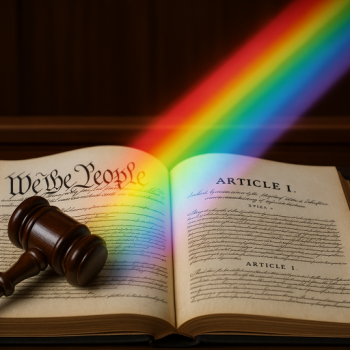Lie unto others as you would have them lie unto you.
You shall not bear false witness against your neighbor. (Exodus 20:16)
Does truth exist? If so, can we know it when we see it? What about lies? What constitutes a lie? Some may say that a lie contradicts truth. God, in Exodus 20:16, viewed truth to such a degree that He commanded His people not to lie to each other. In this context, to bear false witness (lie) is to sin against one’s neighbor. These thoughts came to mind as I read The National Catholic Report’s opinion piece by Fr. Daniel Horan titled, Why Catholics Should Use Preferred Gender Pronouns and Names (October 13, 2021). In this article, I examine Fr. Horan’s arguments in support of using preferred pronouns and names. I evaluate these arguments in light of Scripture, the Catechism of the Catholic Church, and the document Male and Female He Created Them (2019) by the Congregation for Catholic Education. Do the arguments of Fr. Horan contradict these authoritative sources? If not, then I think no honest Catholic disagrees with him, either. If they do contradict these authoritative sources, no honest Catholic need heed Fr. Horan in the slightest, as he clearly teaches error. But we shall see…
Fr. Horan’s Arguments for Preferred Pronouns and Names
Now to the arguments put forth by Fr. Horan, for this section, I quote directly from the article above. In the following sections, I examine them, considering the aforementioned sources.
Names play an important role in the Catholic tradition.
From Abram to Abraham and Sara to Sarah, to the angelic revelations about the names John and Jesus in the Gospels and the change from Saul to Paul in the Acts of the Apostles, embracing a new identity tied to a new nominal expression is commonplace and rooted in our faith tradition.
Calling individuals by the names and pronouns they prefer would not only seem to be the decent and respectful thing to do, which follows from the “golden rule” of doing unto others what you would like others to do unto you (see Matthew 7:12), but it also aligns well with the important role names have throughout Christian Scripture and tradition.
Continued
One can think of other ways throughout history that the refusal to acknowledge an individual’s preferred name or self-referential identity was used to deploy subjugating power and resulted in dehumanization. [Fr. Horan then refers to the renaming of slaves during the slave trade and prohibition against the Uyghurs in China from using Muslim names]
The overt transphobia reflected in such behaviors as denying others the fundamental human rights to personal agency and self-identification is not compatible with the message of the Gospel nor with the long-standing history of name changes within the Catholic tradition that are associated with one’s religious discernment and deepening sense of identity before God and others.
The Catholic tradition, which values the importance and power of names and naming, is also one that is firmly committed — at least in principle — to the inherent dignity and value of all human persons. It is a continued disgrace that so many of those who self-identify as Catholic use our faith tradition to reject and erase the self-identities of our sisters, brothers and other siblings in Christ.
I would add that such behavior is also unchristian and sinful.
Summary
To sum up Fr. Horan’s argument:
- Names play an important role in Catholic tradition in establishing a new identity;
- The Golden Rule dictated to do unto others as we would like others to do unto us;
- To not use preferred names and pronouns undermines human rights and agency;
- Therefore, to use preferred pronouns and names truly follows Catholic tradition, the Golden Rule, and reinforces human rights and agency. The refusal to do so is unchristian and sinful.
What’s In a Name?
Moreover, while names in Scripture changed to signify a new identity, in no way did this new identity contradict reality or promote falsehood. Abram to Abraham, Sara to Sarah, and Saul to Paul did not in any way change their foundational human natures. The change in name reflected a change in character, as seen in Abraham’s willingness to follow God and God conferring onto him a promise (Genesis 17:5). Likewise, with Saul choosing to go by his Roman name Paul. It remains unclear why he chose his Roman name in his epistles. It may have been due to his actions as Saul or that Paul sounded more familiar to the Gentiles he encountered during his mission. Regardless, both Abraham and Paul did not deny their bodily nature in the selection of their chosen names.
What’s In a Preferred Name and Pronoun?
Conversely, a person typically asks others to use preferred pronouns and names when they decide their gender contradicts their natural body. This decision to deny physical reality then triggers a societal chain reaction in which others must affirm this decision or risk taking on the label of transphobe. Fr. Horan also uses this label on fellow Catholics who refuse to comply with this new use of “personal agency and self-identification.” Maybe Fr. Horan needs to return to seminary and retake Old Testament hermeneutics. In so doing, Fr. Horan may discover that those who refuse to affirm this contradiction do so because they do not want to lie and bear false witness against their neighbor.
Lie Unto Others as You Would Have Them Lie Unto You…
Furthermore. Fr. Horan feels the inability to use preferred pronouns and names stands in direct opposition to the Golden Rule. Not only does it go against the Golden Rule, but those who refuse to use preferred pronouns and names are “unchristian and sinful.” Why? According to Fr. Horan, the Golden Rules of do unto others what you would like others to do unto you means affirming them in their rejection of bodily unity. Or rejecting what Male and Female He Created Them calls the “unity of body and soul.” Quoting from Veritatis Splendor 50, the Vatican-approved document states:
32.The Holy Scripture reveals the wisdom of the Creator’s design, which “has assigned as a task to man his body, his masculinity and femininity; and that in masculinity and femininity he, in a way, assigned to him as a task his humanity, the dignity of the person, and also the clear sign of the interpersonal communion in which man fulfils himself through the authentic gift of himself”. Thus, human nature must be understood on the basis of the unity of body and soul, far removed from any sort of physicalism or naturalism, since “in the unity of his spiritual and biological inclinations and of all the other specific characteristics necessary for the pursuit of his end”.
Therefore, for Fr. Horan, the most Christian and sinless action a Catholic can do in accordance with the Golden Rule is affirm others in their lie as we would want others to affirm us in our lies. This does not add up. This is not the intended use of the Golden Rule. This is a corruption of it.
Human Rights and Agency
Eventually, Fr. Horan moves on from theology to philosophy and the concepts of human rights and agency. Here, Fr. Horan attempts to bridge the experiences of oppressed Uyghurs in China and African slaves to that of trans individuals. To deny the experience of trans people by refusing to use their preferred pronouns and names equates to the denial of human rights to Uyghurs in China today and freedom to African slaves hundreds of years ago. Such an understanding lessens the experience of Uyghurs and African slaves, as their actual human right and agency were removed (and continue with the Uyghur) by force. The refusal to use preferred pronoun or names that contradict reality does not equate to the experience of Uyghurs and African slave.
Furthermore, do any limits exist to “personal agency and self-identification?” What of those who think themselves a different race (transracial) and wish others to identify them as such? Do we risk the denial of their “personal agency and self-identification,” and thus their human right and agency, if we refuse to address them by their preferred race?
You Shall Not Bear False Witness Against Your Neighbor
In conclusion, the real issue before us concerns truth and lies.
Jesus said to him, “I am the way, and the truth, and the life. No one comes to the Father except through me. (John 14:6)
Jesus self-identifies as the Truth. The way to truth and life come through Him. Our duty and calling as Catholics are to testify to the Truth and avoid lies. Catechism of the Catholic Church, paragraph 2483, clearly states:
Lying is the most direct offense against the truth. To lie is to speak or act against the truth in order to lead someone into error. By injuring man’s relation to truth and to his neighbor, a lie offends against the fundamental relation of man and of his word to the Lord.
And in 2485:
By its very nature, lying is to be condemned. It is a profanation of speech, whereas the purpose of speech is to communicate known truth to others. The deliberate intention of leading a neighbor into error by saying things contrary to the truth constitutes a failure in justice and charity. The culpability is greater when the intention of deceiving entails the risk of deadly consequences for those who are led astray.
Therefore, the evil of a lie rests in the fact that it leads others into error. A lie can risk the health of another’s soul and must be avoided at all costs. When we use preferred pronouns and names, we act against the 8th Commandment, the Golden Rule, and Jesus as the Truth. We also risk leading others astray to their eternal detriment. So, no, Fr. Horan, I will not be using preferred pronouns and names any time soon.
Like What You Read?
Like what you read? Please check out my other writing here. Furthermore, please read. Moreover, thanks!
Please like and follow me on Facebook and Twitter.













